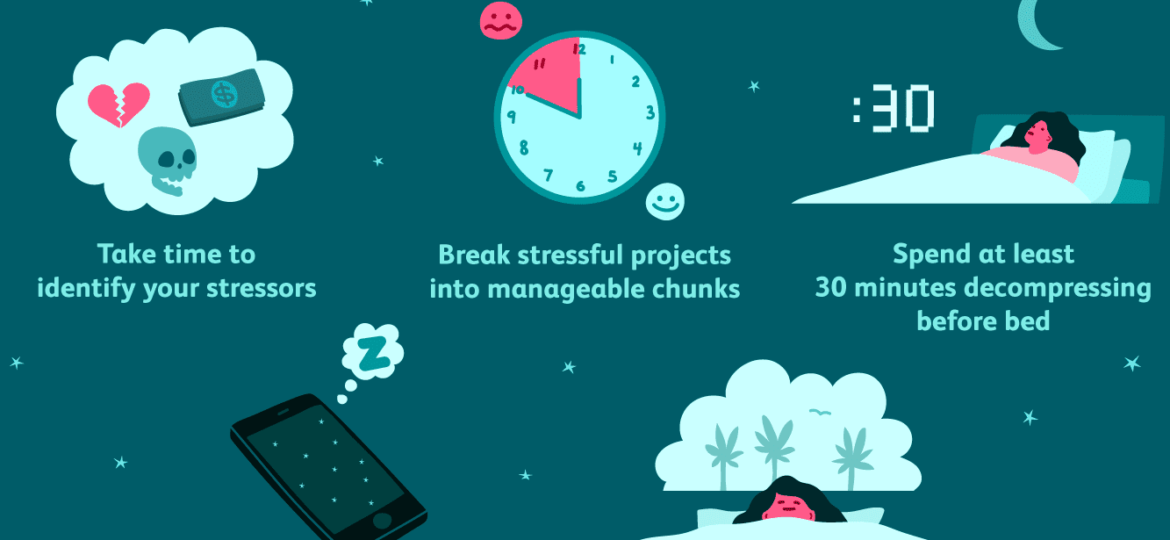
You know the feeling: it’s time for bed, you’re tired, but your mind doesn’t want to stop chattering to itself. And in the process, it’s stopping you from going to sleep. It’s just racing around as though it’s the middle of the day. Here are some tips to help you get over the problem of your mind chatter stopping you from getting to sleep.
Start unwinding about an hour before going to bed
Part of the problem with mind chatter is that our mind doesn’t have an on/off switch.
It really has trouble moving from being fully engaged to doing something more restful.
I find that by starting to unwind and slow down about an hour before bed time, my mind has chance to finish most of the chatter it had started and allows me to get to sleep without too much interference from the background chattering.
Cut down on the caffeine
Caffeine is obviously in things like coffee and cola. But it’s also in tea, so simply swapping from coffee to tea won’t necessarily do the trick.
Students know to drink coffee and pop caffeine tablets to help them stay awake to study.
Which means that you need to do the opposite to help you quiet your mind and get a good night’s rest.
A good rule of thumb is to reduce your caffeine intake from about midday and cut it out altogether from mid to late afternoon.
But a word of warning: caffeine is a powerful drug, so cut down gradually rather than go cold turkey. Otherwise it won’t be mind chatter that’s keeping you awake, it will be a nasty throbbing headache instead.
Have a nice warm bath
This goes well with the first tip.
A nice, long, warm bath is a great way to unwind. It also helps sooth your body and helps you to relax.
If you’re feeling especially keen, light some aromatherapy candles to add to the atmosphere but even without those, a warm bath in subdued lighting can go a long way to relaxing you and cutting down the mind chatter.
Turn off all lights
The darker your room, the better.
That means turning off or covering all lights – even the alarm clock or the standby light on the television (which you shouldn’t have been watching just before retiring to sleep anyway!).
A pitch black room is best – you may need to get a blackout lining for your curtains or blinds but it’s well worth the investment.
Learn to relax
Relaxation is something we instinctively knew when we were younger but seem to forget as we get older.
You can learn to relax using methods such as yoga, meditation (a breathing meditation is simple and works very well) or hypnosis.
Some people seem to find it difficult to switch off, so listening to a pre-recorded relaxation track can be a good way to nudge your body in the right direction.
If you combine that with some binaural beats – a high tech name for playing two slightly different tones, one in each ear – then you’ve got a recipe for a really excellent night’s sleep.
AUTOPOST by BEDEWY VISIT GAHZLY


